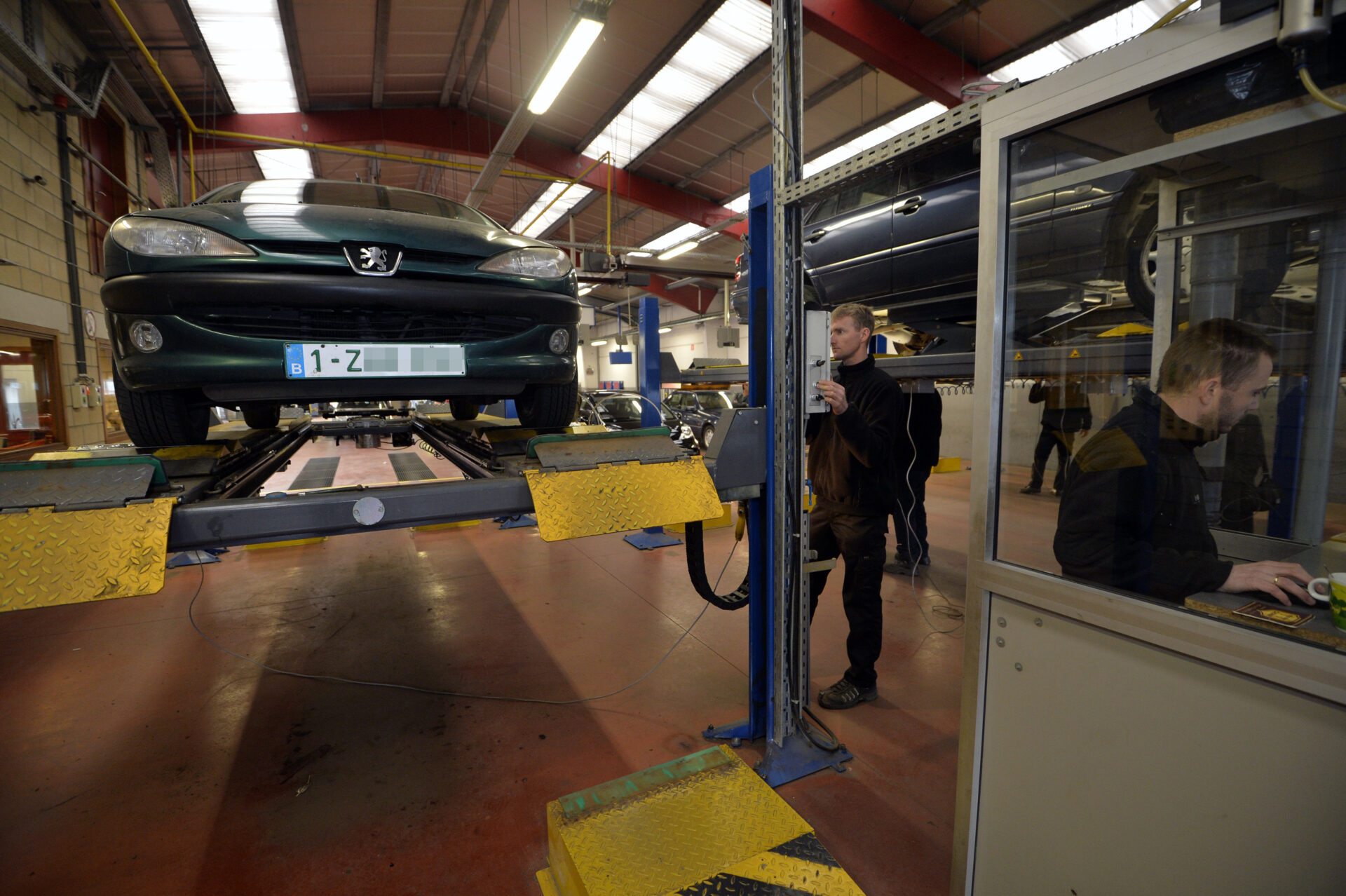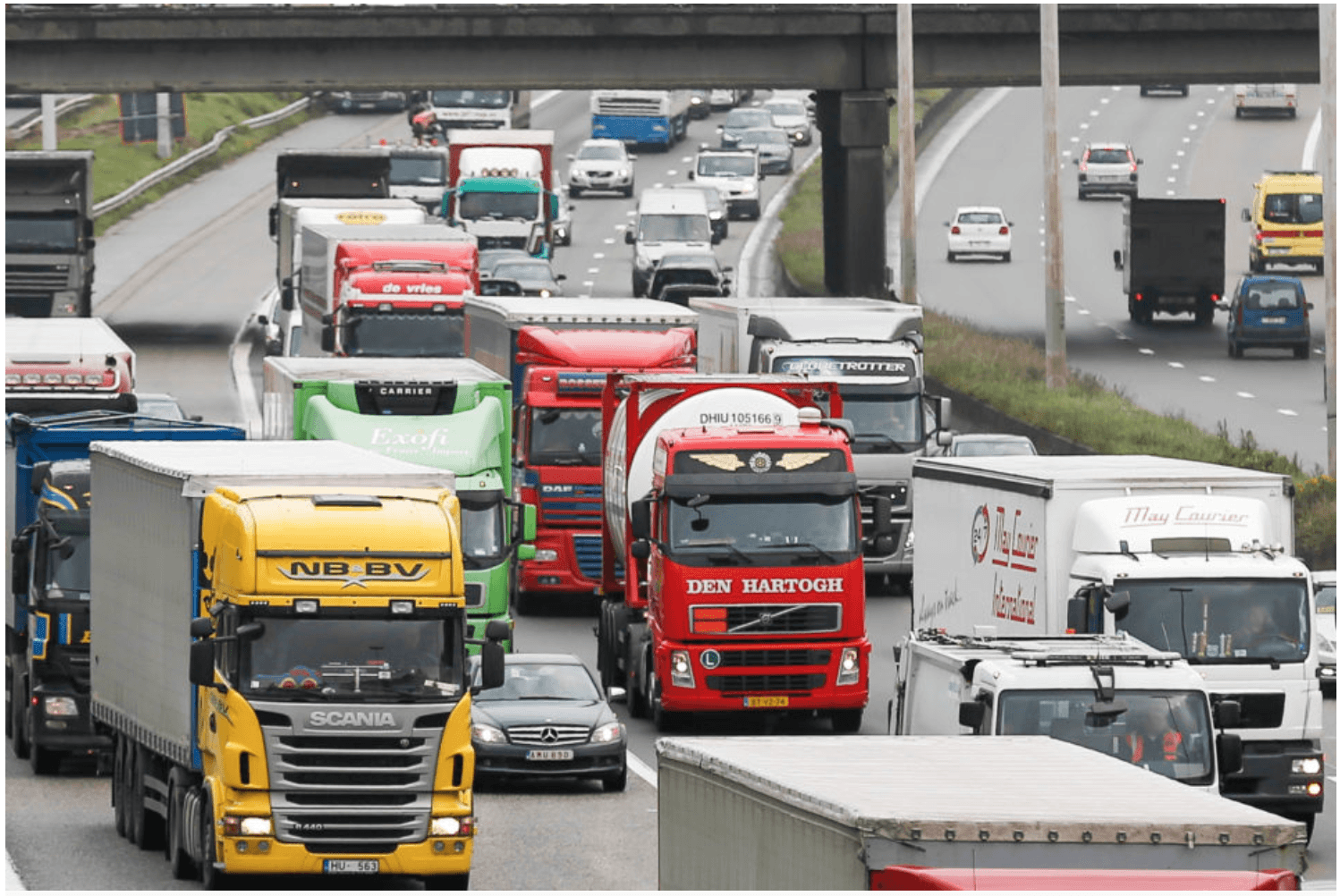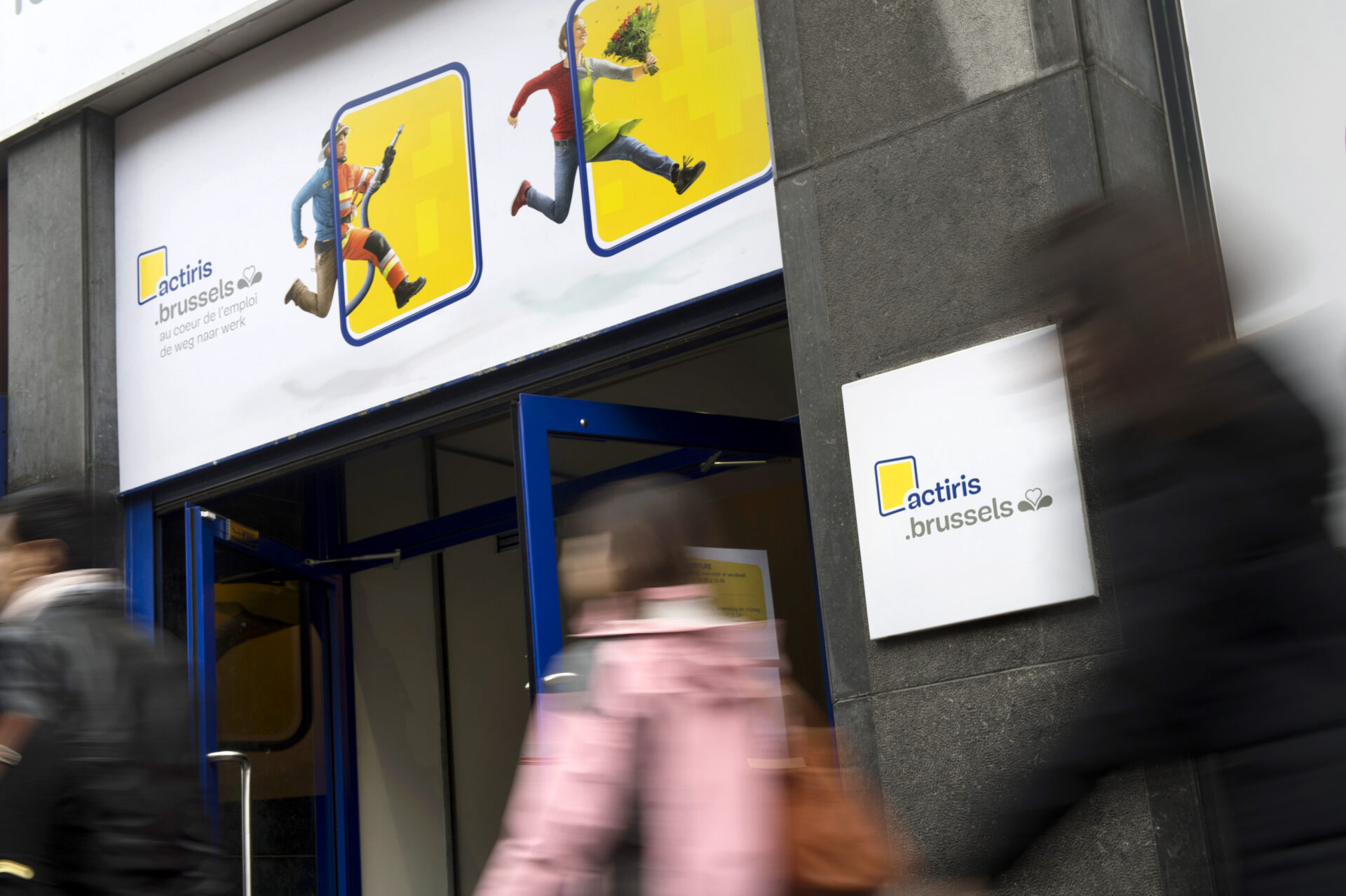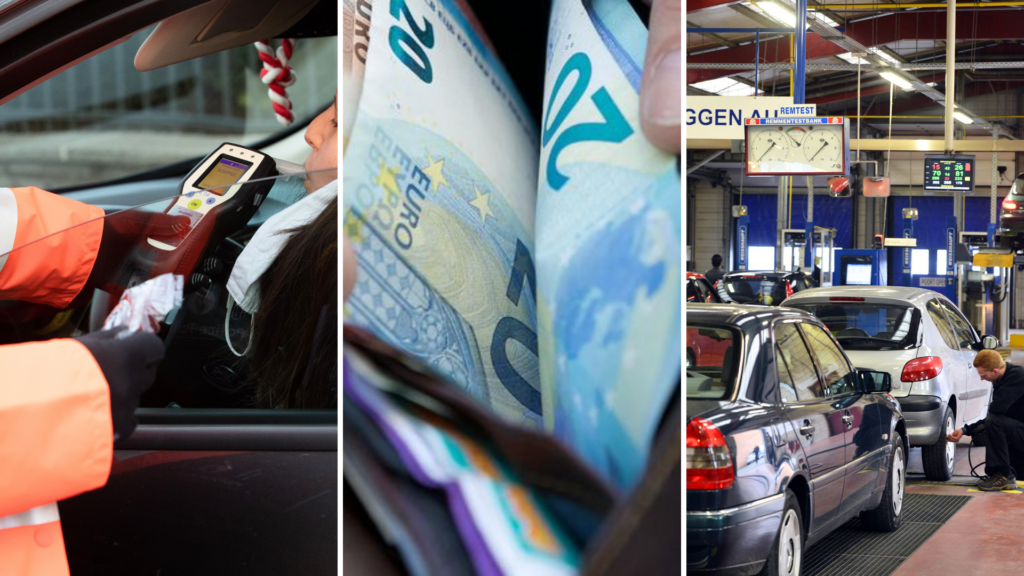June has passed and July brings new rules and revised regulations in Belgium. From changing names and a reduction in car inspections to an additional pension bonus, here's what is new from Monday 1 July.
General changes
One free name change for every Belgian
Every Belgian, recognised refugee or stateless person over 18 now has the right to change their surname once in their lifetime at no cost, provided that the name includes that of the father or the mother (biological or adoptive), or a combination of both.
Previously, changing a surname was a complex, expensive and long procedure. The King had to approve the request, it cost €140 and could take a whole year – and it required a very good justification. Still, hundreds of people underwent the procedure every year.
Given the rise in people wanting to change their name, Belgium has followed the example of countries such as France, the Netherlands and the UK by making the process easier. The application can now be done via the local commune and no longer needs an explanation nor consultation with family members. The process should in normal situations be finalised in one month.
Restrictions on alcohol sales
New provisions restricting the sale of alcoholic beverages in hospitals, petrol stations and vending machines will also come into force on 1 July as part of the Inter-Federal Alcohol Plan.
Selling alcoholic beverages through vending machines is no longer allowed, the sale of alcoholic beverages is now banned in hospitals except for non-refrigerated beer and non-refrigerated wine (on-site consumption in the cafeteria is permitted) and between 22:00 and 07:00, the sale of alcoholic drinks at motorway service stations is prohibited, except for roadside restaurants where on-site consumption is allowed.
Checks will take place from Monday and people who violate these rules can be fined from €208 to €24,000 in case of repeat offences.
Streaming service HBO Max comes to Belgium
Streaming platform HBO Max will launch its services in Belgium from 1 July. Subscribers in Belgium will be able to watch the entire Paris 2024 Olympic Games live, as well as HBO programming (the catalogue has included popular series such as 'Game of Thrones', 'Succession' and 'The Last Of Us'), Discovery programming, original international Max productions, and other major international sporting events via Eurosport.
In addition, the streaming platform will also offer new films from Warner Bros. as well as some of the producer's catalogue, such as the entire 'Harry Potter' series. A standard subscription to HBO Max costs €9.99 a month; a cheaper €5.99 formula comes with advertising before and during episodes. A package which gives access to four screens instead of two along with 4K resolution costs €13.99 a month.
No heading footballs for children 8 and younger
Heading the ball will be banned for young children who play for a recognised football club in Belgium to avoid "an impact on the still strongly developing brain".

Children playing outside with a football. Credit: Belga/ Peter Sporck
While the youngest footballers rarely head balls in training sessions and matches, when they do it is often in the wrong way and can impact the brain. If a person heads the ball intentionally, an indirect free kick is awarded to the opponent. Those over the age of eight will be taught to "header in a technically correct manner".
Mobility
Car inspections now every two years
Most passenger cars will now only require inspections every two years instead of annually, as was the case for cars older than four years. Once a vehicle has covered 160,000 kilometres or is 10 years old it must be checked every year.

A technical car inspection in Brussels. Credit: Belga/ Eric Lalmand
Meanwhile, passenger cars, light trucks and trailers can also be inspected outside approved inspection centres, such as at garages that install inspection lines for this purpose. These measures should take pressure off official inspection centres, reduce waiting times and improve services.
Changes to road alcohol checks
Anyone who has to blow at an alcohol check must now exhale 33% less air. The minimum air needed to produce a test result is now 1.2 litres rather than 1.9, which will reduce the time that tests take. The measure comes after improvements to breathalysers, which can now produce valid results with less air.
Previously, anyone who didn't produce 1.9 litres of air had to give a blood sample – a time-consuming procedure that necessitated calling a doctor. The option to ask for a 15-minute wait before carrying out a breathalyser test has been dropped since May.
Tax goes up for new car registration in Brussels
Vehicle registration tax will go up 20.79% for Brussels residents from 1 July. The tax has not been indexed since 2020, while Wallonia raised it in 2022 and Flanders in 2023.
Although the indexation will increase the tax burden for taxpayers, the government argues the effect will be minimal since it only applies once when the vehicle is registered. The change is forecast to raise some €3.5 million over the next six months.
Higher kilometre charges for trucks, emission-free trucks exempt in Brussels
Truck kilometre charges will be indexed by around 3% in Flanders and Brussels. In Wallonia, fares were indexed on 1 January. The kilometre charge will apply to all domestic and foreign trucks with a maximum authorised mass (MTM) of more than 3.5 tonnes.

Credit: Belga
Emission-free trucks be exempt in the Brussels-Capital Region as part of efforts to green logistics transport. In Flanders, zero-emission trucks have not had to pay a kilometre charge since the beginning of 2024. But in Wallonia a lower kilometre charge still applies to zero-emission trucks.
Increase in tax-exempt mobility premium
The maximum amount of the mobility premium exempted by the National Office for Social Security – a flat-rate allowance for employees who need to travel to non-fixed workplaces, such as construction sites – will rise to €0.1929 per kilometre.
Since 2020, the premium has been exempt from social security contributions if the amount does not exceed €0.1579 per kilometre. From July, the ceiling will be raised to €0.1929. However, this does not mean an automatic increase in the amount for everyone as there is no obligation to allocate the maximum amount.
New public transport offer in Flanders
Pressure caused by staff shortages, dated buses and the delayed delivery of new buses following the bankruptcy of bus builder Van Hool has led Flemish public transport operator De Lijn to adjust its offer to provide "a more reliable service".
This will mean reallocating vehicles and drivers to areas where demand is greatest, resulting in new bus numbers and different timetables. Some stops will no longer be serviced in the Flemish periphery around Brussels, Mechelen, Tienen and Ghent. All changes can be found on De Lijn's website.
Only electric service vehicles used by Federal Government
From 1 July, the Federal Government will only buy or lease electric service vehicles as part of the EU drive for climate-neutrality by 2050.
The government currently has 920 vehicles that are not electric (not including police or defence vehicles). These are mainly used for assignments such as customs or social inspection but also include the vehicles of some senior staff members.
Changes in the workplace
Pension bonus for people working longer
People who choose to continue working despite reaching the legal retirement age from 1 January 2025 can now accrue a "pension bonus". This measure aims to keep people working longer.
The current retirement age in Belgium is 65 but many people can retire a few years earlier if they have completed a 42-year career. Specifically, an employee, self-employed person or civil servant who continues working beyond the earliest date at which they can retire can accrue a pension bonus for up to three years.
The condition is that the pension starts from 1 January 2025 at the earliest. The pension bonus is a net amount, exempt from personal income tax and social security contributions, which accrue progressively. Those who are entitled to the bonus will receive the money automatically.
Brussels reforms employment aid
Employment aid in the Brussels Region is being reformed, specifically concerning three types of employment aid. The activa.brussels premium, which employers can get if they hire "lower-skilled" jobseekers and those aged 57 or over, will rise from €15,900 to €23,400 over 36 months.

The Brussels employment office Actiris. Credit: Belga / Jonas Hamers
The region is also increasing the premium linked to the "First Internship". This gives young jobseekers a first professional experience through a three- or six-month internship. Finally, companies recruiting people with disabilities will receive a €5,000 premium to cover expenses related to integrating the employee. To be eligible, employers must propose at least a half-time employment contract for more than six months.
Federal civil servants can work just three days per week
Civil servants in the Federal Government can now choose to work three fixed days out of five (a three-fifths scheme). This applies to statutory staff or trainees.
This new system is part of the option to work less as part of "reduced performance due to personal matters". Within the same reduction in benefits, they can already choose to work half-time, two-thirds, three-fourths, four-fifths or nine-tenths for some time.
Across borders
Hungary takes over EU presidency from Belgium
Hungary will take over the Presidency of the European Union from Belgium on 1 July. Belgium chaired the Council of the European Union during the first half of 2024 under the motto "Protect. Strengthen. Prepare".
Belgium set six key focus areas: defending the rule of law, democracy and unity; strengthening competitiveness; pursuing a green and just transition; reinforcing the social and health agenda; protecting people and borders; and promoting a global Europe.
The slogan of the Hungarian EU presidency is "Make Europe Great Again", which the country says highlights the "expectation that we are stronger together than alone, but also that we can remain ourselves when we come together".
With a right-wing nationalist government led by Prime Minister Viktor Orban, Hungary is prioritising a more competitive Europe, enlargement to Western Balkan countries, fighting illegal immigration, strengthening defence policy and demographic challenges.
It marks the first time the European Council of Ministers will be led by a Member State that has faced the Article 7 procedure, which saw billions of euros in subsidies withheld from Hungary.
Belgian fishermen can fish four times more sole in Irish Sea
Belgian fishermen will be allowed to catch four times more sole in the Irish Sea. The quota had been reduced from 270 tonnes in 2023 to 62 tonnes in 2024. This will now go up to 281 tonnes after a recent scientific report indicated that the sole stock in the Irish Sea is in much better condition.
Sole is an important target species for Belgian fishermen, accounting for half of their turnover.

